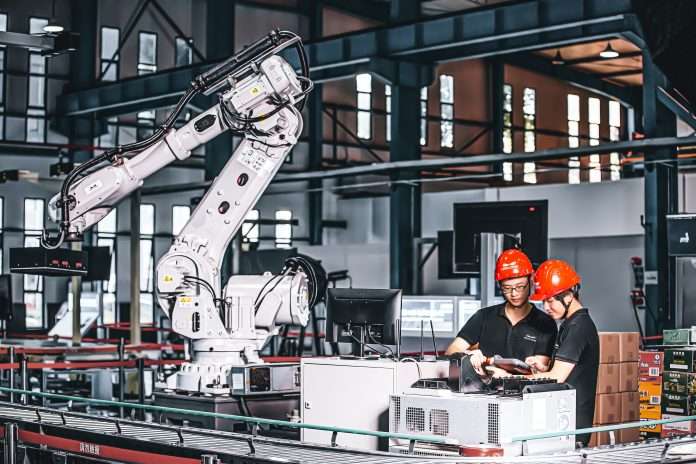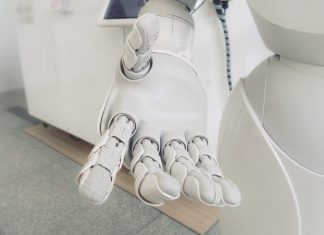According to software provider Scanbot, machine learning is ushering in a new era of efficiency and innovation in the manufacturing industry, playing a pivotal role in the fourth industrial revolution.
As the global smart manufacturing market is projected to grow from $277.8bn in 2022 to an impressive $658.4bn in 2029, artificial intelligence becomes an indispensable tool in meeting production demands, enhancing workforce productivity, and minimising process losses.
At the core of this digital transformation, according to Scanbot, is machine learning technology, which empowers computer systems to learn from data and hone their capabilities without explicit programming. With advanced algorithms and complex statistical models, machine learning is proving invaluable in various manufacturing processes.
One notable application of machine learning is the powering of industrial robots. These robots can process vast amounts of data, identify patterns, and draw intelligent conclusions, enabling them to pinpoint sources of error, augment employee safety, and expedite work steps.
Scanbot outlined that one of the key applications of machine learning in manufacturing is predictive maintenance. Unforeseen downtime and equipment failures can significantly hinder production speed and profitability. With machine learning algorithms, manufacturers can analyse historical performance data, detect patterns, and anticipate potential failures or maintenance needs, thereby reducing downtime and extending equipment lifespan.
Machine learning also revolutionises quality control, which has traditionally relied heavily on time-consuming manual inspections prone to human error. Machine learning algorithms swiftly evaluate data collected from various sensors, cameras, and monitoring devices, detecting deviations from quality standards and allowing manufacturers to rectify problems early, ensuring consistent product quality.
Scanbot highlighted that supply chain management is another area greatly improved by machine learning. Manufacturers can introduce cognitive supply chain management, effectively managing stock levels, shipping, and production, thus ensuring smooth supply network operations. Machine learning also allows effective cargo routing and planning, lowering transportation costs and enhancing logistics. Moreover, machine learning is used for demand forecasting, helping manufacturers adjust their procurement, production, and distribution processes in advance.
Machine learning algorithms can also be employed for process optimisation and automation. By analysing extensive volumes of input data, these algorithms can identify areas for improvement, enabling manufacturers to evaluate production processes, streamline workflows, and boost overall operational efficiency.
Safety is a paramount concern in manufacturing, and machine learning plays a critical role in risk management. By analysing historical and real-time sensor data, machine learning algorithms can identify potential safety issues, estimate accident probabilities, and suggest preventive measures, thereby promoting workplace safety and employee well-being.
In conclusion, machine learning provides manufacturing companies with tools to attain new heights of productivity, innovation, and safety. Particularly when combined with advancements in the Internet of Things (IoT), machine learning and AI applications are increasingly unlocking new optimisation and business opportunities across the manufacturing industry. Read the full Scanbot post here.
Keep up with all the latest FinTech news here.
Copyright © 2023 FinTech Global











